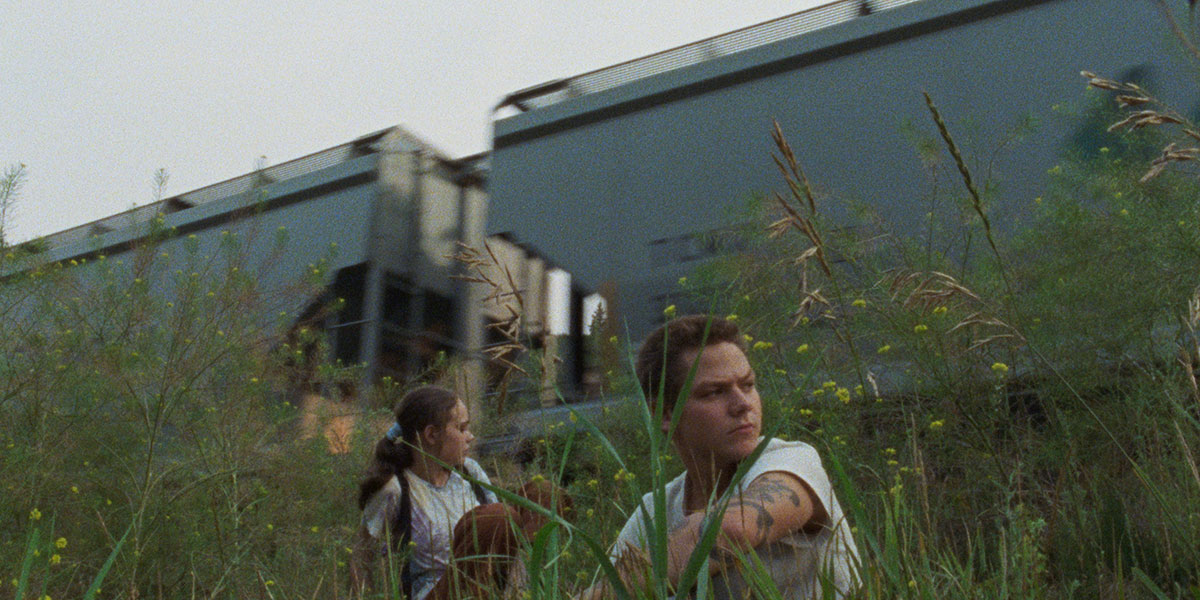The Maiden, Graham Foy’s feature film debut after a series of impressive shorts, shows a lot of formal skill but a lack of flair for dramaturgy. The film initially centers on Colton (Marcel T. Jimenez) and Kyle (Jackson Sluiter), two unremarkable teenagers who nonetheless function as outsiders within the Canadian province of Alberta, a conservative oil nexus that’s lived in the shadow of Texas. They kill time outside of class the old-fashioned way: not on their computers or smartphones, but skateboarding through Calgary, exploring nature, and even flat-out tossing shit around. Of course, Kyle in particular is a perfect cipher for this kind of film—he’s both a dumb teenager and has artistic inclinations of hardcore music and graffiti art, as probably any director making a film within this setting can’t imagine it without some sort of surrogate for themselves.
Yet during a nighttime adventure, Kyle is tragically struck by a moving train. (The camera makes sure to hang on for what seems like the train’s entire trip after the incident). In the aftermath Colton turns essentially mute and inconsolable, the grief overwhelming his entire existence. Thus the film’s slow-cinema aspirations turn into laughable portent with another ridiculously long shot: the back of a morose, hoodie-wearing Colton amongst a sea of cowboy-hat-donning students at his high school.
At least a narrative gambit in the second half breaks up the monotony somewhat, shifting focus to Whitney (Hayley Ness), another sensitive, artistic soul who holds key to the memory of Kyle through her journals. Both the film’s bifurcated structure—where revenants gradually take hold in the material world and the ability to render an Albertan forest as something akin to a humming jungle—shows The Maiden‘s debt to Tropical Malady. Yet if anything the film’s pretensions become even more strained once it opens up to this dreamy mode.
One gets the feeling there’s not a lot of there there per se, assured aesthetics trying to cover a lack of interest in dramatizing grief beyond the basics of any earnest indie. Ultimately it’s the kind of thing that gets labeled “a meditation on,” which in short means it has a simple message—rural or suburban areas are spiritually crushing, the dead can live on through our memories, etc.—with a lot of arty signifiers to convince you there’s something greater at stake. But certainly there’s no doubt that the grainy and beautiful 16mm, with peeling paint and rust vividly captured alongside low-shutter-speed shots of the moon and enshrouded nighttime foliage—not to mention the camera gliding horizontally across an empty high school—will provide ace material for a cinematographer’s reel.
The ideas and series of aesthetic tricks stretched out to a borderline punishing two hours, the film at least provides a pretty clear compare-and-contrast case of what it means to self-consciously extend shots instead of providing a true immersive experience à la masters of slow cinema. If highly admirable for being far more artistically ambitious than most Canadian indies, playing so emotionally inert is unforgivable with this material.
The Maiden screened at the Toronto International Film Festival.

